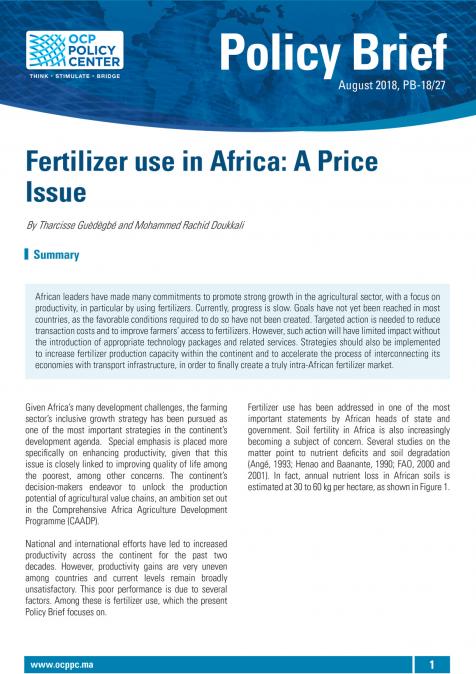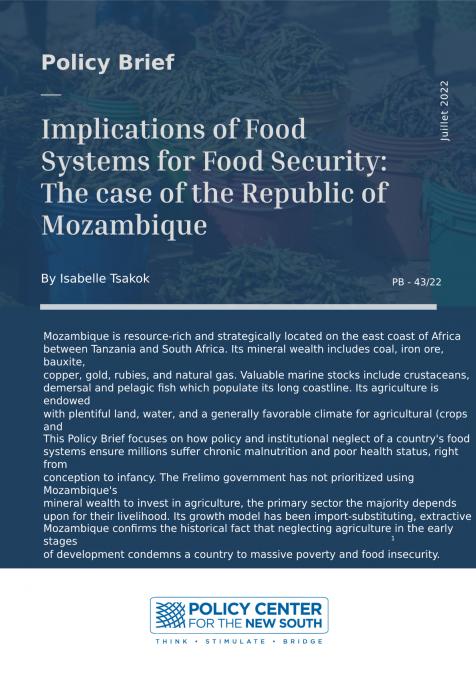Publications /
Policy Brief
African leaders have made many commitments to promote strong growth in the agricultural sector, with a focus on productivity, in particular by using fertilizers. Currently, progress is slow. Goals have not yet been reached in most countries, as the favorable conditions required to do so have not been created. Targeted action is needed to reduce transaction costs and to improve farmers’ access to fertilizers. However, such action will have limited impact without the introduction of appropriate technology packages and related services. Strategies should also be implemented to increase fertilizer production capacity within the continent and to accelerate the process of interconnecting its economies with transport infrastructure, in order to finally create a truly intra-African fertilizer market.










